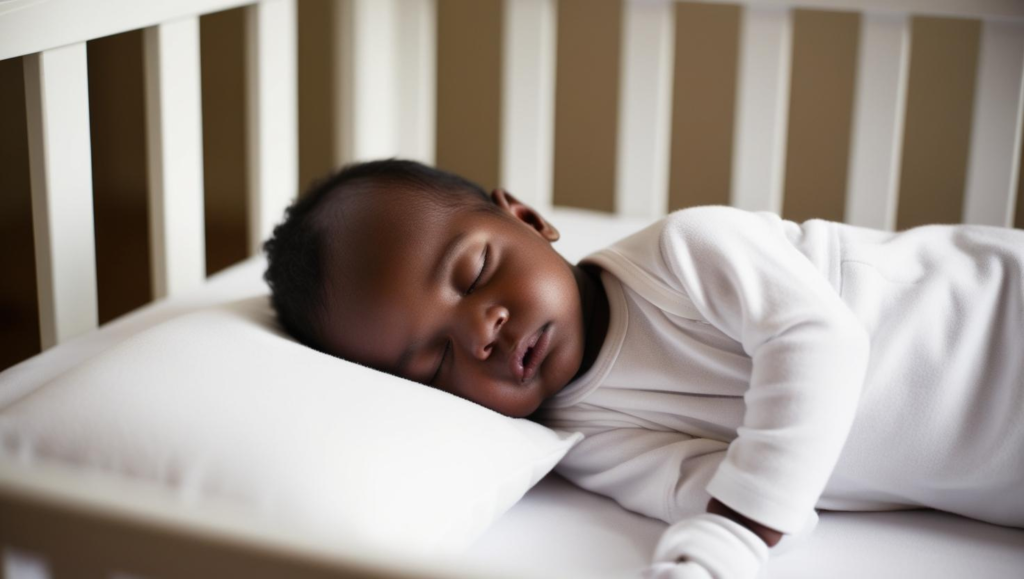
Why Sleep is Important for Babies
Babies need lots of sleep to:
- Grow strong
- Learn new things
- Stay healthy
- Have good moods
- Develop their brain
Most babies 6-12 months need:
- 12-16 hours of sleep per day
- 2 naps during the day
- 10-12 hours of sleep at night
Signs Your Baby is Ready for Sleep Training
Your baby might be ready to learn sleep skills when they:
- Can sleep for longer stretches
- Are 6 months or older
- Have a more predictable schedule
- Can self-soothe (put fingers in mouth)
- Are eating solid foods
Popular Sleep Training Methods
1. Gradual Retreat Method
- Stay in the room
- Sit far from the crib
- Move a little further away each night
- Help baby learn to fall asleep alone
2. Check and Console Method
- Put baby in crib awake
- Check on them at set times
- Comfort them quickly
- Leave the room
- Slowly increase time between check-ins
3. Cry It Out Method
- Put baby in crib awake
- Let them cry for short periods
- Do not pick them up
- Let baby learn to fall asleep alone
- Use this method carefully
- Please be cautious when using this method. Avoid letting your child cry for long periods.
Creating a Bedtime Routine
A good bedtime routine helps babies know it’s time to sleep:
Start 30-45 Minutes Before Bedtime
- Give a warm bath
- Put on soft pajamas
- Read a short book
- Sing a quiet song
- Use soft lights
- Keep things calm and quiet
Things to Include
- Do routine in same order every night
- Use soft, quiet voices
- Keep room dark or dimly lit
- Use white noise or soft music
- Keep room temperature cool (68-72 degrees)
Sleep Environment Tips
- Use a firm mattress
- Keep blankets and toys out of crib
- Dress baby in one more layer than you would wear
- Use a sleep sack instead of loose blankets
- Make sure room is dark
- Use blackout curtains if needed
What to Avoid
- No screens before bedtime
- No big meals right before bed
- No exciting play before sleep time
- Avoid changing routine too much
- Do not let baby fall asleep while eating
Dealing with Night Wakings
- Keep interactions calm and boring
- Use soft voice
- Minimal lighting
- Check if baby needs diaper change
- Offer quick comfort
- Put back in crib awake
When to Ask for Help
Call your doctor if your baby:
- Has trouble breathing while sleeping
- Snores loudly
- Seems very tired during day
- Has major sleep problems that don’t improve
Important Sleep Safety
- Always put baby on back to sleep
- Use a firm, flat surface
- No soft bedding in crib
- Keep crib clear of toys and blankets
Remember
- Every baby is different
- Be patient with yourself and baby
- Consistency is key
- It takes time to learn new sleep skills
References
- American Academy of Pediatrics. (2022). Healthy Sleep Habits. HealthyChildren.org.
- National Sleep Foundation. (2021). Infant Sleep Guidelines. sleepfoundation.org.
- Centers for Disease Control and Prevention. (2022). Infant Sleep Patterns. cdc.gov.
- Mayo Clinic. (2021). Infant Sleep Training. mayoclinic.org.
- Pediatric Sleep Council. (2022). Sleep Training Methods. pediatricsleepcouncil.org.
- American Academy of Sleep Medicine. (2021). Pediatric Sleep Recommendations. aasm.org.


